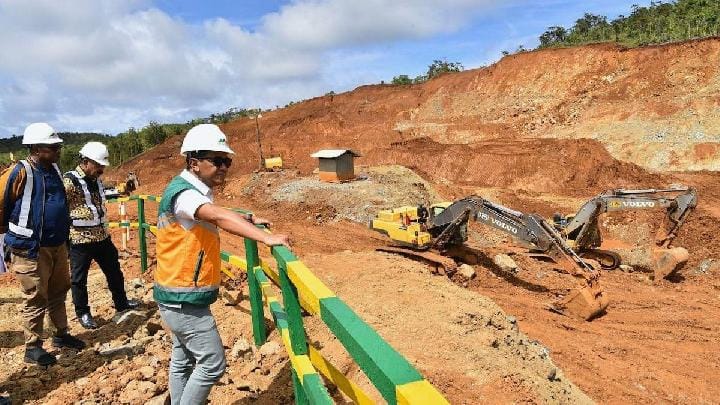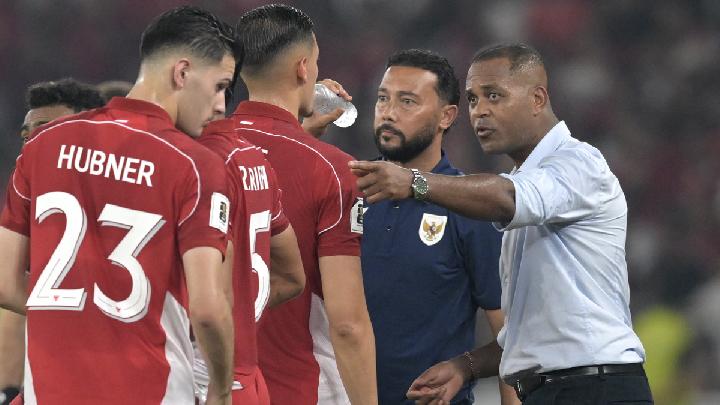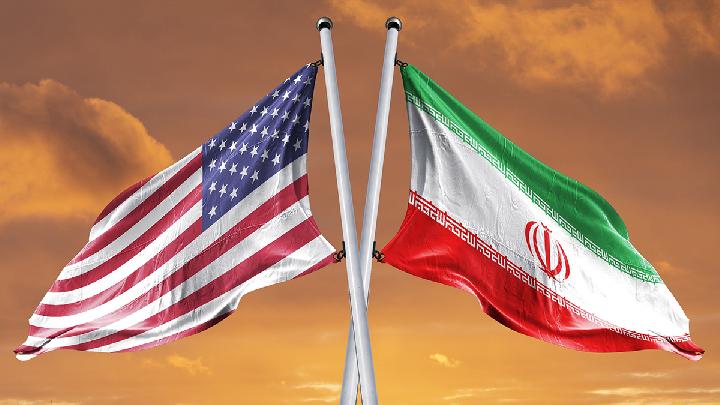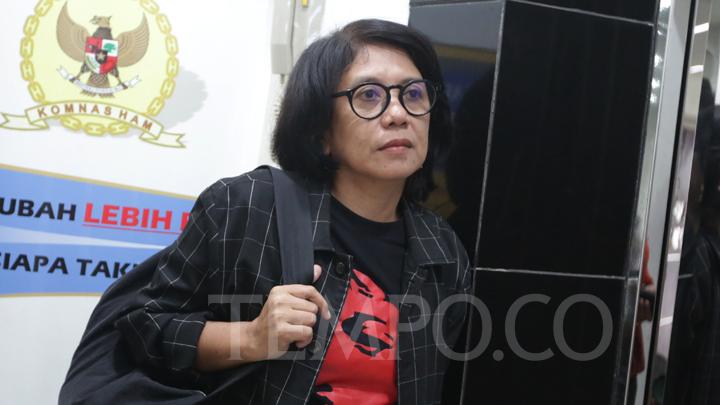
TEMPO.CO, Jakarta - Without any transparency or oversight, Danantara is accelerating the establishment of extractive economic institutions in Indonesia. The first step to becoming a failed state.
THE transfer of the management of state-owned companies from the State-Owned Enterprises (SOEs) Ministry to Daya Anagata Nusantara Investment Management Agency, or Danantara, is more than simply changing the political landscape. It has led to concerns over corporate governance of these state-owned companies.
In the political landscape, we see how SOEs Minister Erick Thohir, who used to be in charge of selecting directors and commissioners of state-owned companies, is like a kite with a broken string. He has lost his authority and is being shunned by officials around him. In a number of forums related to SOEs, he has been ignored and not even given an opportunity to make a speech. And his relationship with President Prabowo Subianto has grown distant.
In terms of governance, we are witnessing the time bomb of economic destruction ticking ever faster. Realizing the dream of his father, Sumitro Djojohadikusumo, Prabowo has established an investment agency, which has gathered hundreds of SOEs with tens of trillions of rupiah in assets. Instead of becoming a solution to the lack of funding, Danantara could become a way for a small elite to strengthen their economic power. Under the pretext of the interests of the people, Danantara is allowed to allocate funds to projects that are not economically feasible, but that benefit groups close to the administration. Unilaterally decided, these projects proceed without adequate fiscal protection. The people, who have no idea about the amount of state funds used for these projects, share the risk.
The SOE Law, which provided a basis for the establishment of Danantara, does not include provisions about satisfactory oversight of the management of the institution. Project failures are not recorded as losses to the state. If there are indications of corruption, law enforcement authorities can no longer question SOE directors. Responsible to the president, Danantara is commanded by political desire under the name of priority programs, not by public reason—the idea that laws should be acceptable to the public.
Plans for Danantara to enter into high-risk projects have been announced. In the coal gasification project being run by Bukit Asam, for example, the government wants to reduce liquefied petroleum gas (LPG) subsidies so Pertamina can obtain cheaper gas supplies. However, calculations show that the production and financial costs of this exceed the amount saved on subsidies.
In the project of a refinery construction worth around US$2.25 billion, or more than Rp41 trillion, the entrepreneur involved is Prabowo’s own younger brother, Hashim Djojohadikusumo. In managing this project, he has brought in British company Gemcorp Capital.
Closer examination shows that the way Danantara manages state companies is moving towards the establishment of an extractive economic institution as described in the thesis of Daron Acemoglu and James Robinson, winners of the 2024 Nobel Prize in economics. They say a state’s policies and institutions are used to enrich a group of people. Equal business opportunities are not provided, and the playing field is made uneven.
Before Danantara was established, a number of policies smoothed the way for this malevolent plan. The revised Mineral and Coal Mining Law, which was passed in February 2025, gave the elite the authority to manage natural resources in a non-transparent way. The Job Creation Law, passed in the era of Joko Widodo, was a precondition for the establishment of extractive economic institutions.
The combination of extractive economic institutions and extractive political institutions—according to Acemoglu and Robinson—is an effective recipe for a nation to rapidly fall into an abyss. Research by the two economists showed that in a number of failed states—which had never developed or that had gone from rich to poor—the two went hand-in-hand. The establishment of extractive political institutions was marked by weak law enforcement and the lack of cheques and balances within the government.
Indonesia meets all Acemoglu and Robinson’s criteria. After law enforcement became a tool of the government and bodies to control the executive were weakened, the role of the military is increasing in the Prabowo era. If it comes to pass, the desire of Prabowo and a number of politicians to end direct elections of regional leaders will make it even clearer that our political system is entirely extractive.
The story of the political rise and fall of Erick Thohir—who was once spoken off as a vice-president for Prabowo Subianto, but who failed to get the job—perhaps makes for an amusing conversation over dinner. But Indonesia’s first steps toward becoming a failed state could make its people lose their appetite—or even make it impossible for them to eat.
Erick Thohir Credits Prabowo's Presence for Indonesia's Win Over China: "He Brought Luck"
2 hari lalu

Erick Thohir said the victory of the Indonesian national team against China was thanks to the prayers of the Indonesian people. He also mentioned that Prabowo brought luck to the national team.
Erick Thohir Offers Prabowo Subianto Position on PSSI Honorary Council
4 hari lalu

PSSI Chairperson Erick Thohir said Prabowo accepted the offer made during a meeting at the Presidential Palace in Central Jakarta on June 4.
Ray Dalio Denies Stepping Down from Danantara Advisory Position
4 hari lalu

American investor Ray Dalio affirmed that his partnership with Danantara remains unchanged.
Danantara Aims for US$5bn Investment This Year
4 hari lalu

The Daya Anagata Nusantara Investment Management Agency (BPI Danantara) aims to achieve US$5 billion in investments by the end of 2025.
Patrick Kluivert Weighs In on Fresh Talent in the Indonesian National Team
6 hari lalu

In the 30 names of the Indonesian national team players in the training camp, there are five newly called-up players by Patrick Kluivert.
Prabowo Convenes Meeting with Sri Mulyani and Erick Thohir on Economic Incentives
6 hari lalu

SOE Minister Erick Thohir indicated that important topics discussed in the meeting with Prabowo included potential discounts and other incentives.
Danantara's High Risk Investments
9 hari lalu

Danantara is set to take on several high-cost downstream projects. The business feasibility is questionable.
Pertamina Oil Fields of Corruption
11 hari lalu

Corruption in the management of oil at Pertamina happens at every level. They buy oil at too high a price and sell it at below market price.
Zulhas Reveals Why Prabowo's Village Cooperatives Are Partnering with Danantara
16 hari lalu

Zulhas stated that the cooperation between the Red and White Village Cooperatives and Danantara is happening automatically.
Sri Mulyani Shares 8 Economic and Social Strategies for a Prosperous Indonesia
18 hari lalu

Sri Mulyani's strategies range from food security to bolstered investment.































:strip_icc():format(jpeg)/kly-media-production/medias/3977835/original/066021800_1648524608-pexels-ahmed-aqtai-2233416_1_.jpg)
:strip_icc():format(jpeg)/kly-media-production/medias/3449231/original/035609000_1620241432-000_99C2L3.jpg)
:strip_icc():format(jpeg)/kly-media-production/medias/4779768/original/056174500_1711004488-hands-holding-knife-fork-alarm-clock-plate-blue-background.jpg)
:strip_icc():format(jpeg)/kly-media-production/medias/5134530/original/076641900_1739622826-20250215-Prabowo-AFP_7.jpg)
:strip_icc():format(jpeg)/kly-media-production/medias/3626995/original/056226000_1636431538-252444828_305857281141144_6357930935168472204_n.jpg)
:strip_icc():format(jpeg)/kly-media-production/medias/4678420/original/041411600_1701993066-pexels-thirdman-8489077.jpg)
:strip_icc():format(jpeg)/kly-media-production/medias/1619105/original/061499300_1496997418-ramadan-main.jpg)
:strip_icc():format(jpeg)/kly-media-production/medias/3508689/original/070798000_1626139545-20210713-Elon-Musk-SolarCity-5.jpg)
:strip_icc():format(jpeg)/kly-media-production/medias/4769102/original/014075000_1710171937-20240311-Taraweh_Pertama_di_Istiqlal-ANG_1.jpg)
:strip_icc():format(jpeg)/kly-media-production/medias/5106410/original/089112900_1737608852-Buya_Yahya.jpg)
:strip_icc():format(jpeg):watermark(kly-media-production/assets/images/watermarks/liputan6/watermark-color-landscape-new.png,1100,20,0)/kly-media-production/medias/5140628/original/019242500_1740225866-Persita_Tangerang_vs_Borneo_FC-35.jpg)
:strip_icc():format(jpeg)/kly-media-production/medias/3902213/original/084057500_1642045386-pexels-ralph-w-lambrecht-1446076__1_.jpg)
:strip_icc():format(jpeg)/kly-media-production/medias/4878826/original/064720000_1719661833-WhatsApp_Image_2024-06-28_at_23.09.07.jpeg)
:strip_icc():format(jpeg)/kly-media-production/medias/5141412/original/005545700_1740364919-Snapinsta.app_481203089_18446336839077229_3957692586101845976_n_1080.jpg)
:strip_icc():format(jpeg)/kly-media-production/medias/771429/original/006248600_1416892825-m2.jpg)
:strip_icc():format(jpeg)/kly-media-production/medias/2265569/original/050855900_1530514161-20180702-Harga-Pertamax-Naik-di-Semua-Daerah--TALLO-4.jpg)
:strip_icc():format(jpeg)/kly-media-production/medias/2240997/original/070157500_1528277766-arches-architecture-building-460680.jpg)
:strip_icc():format(jpeg)/kly-media-production/medias/5097271/original/033768400_1737073765-cek_fakta_ganyang.jpg)
:strip_icc():format(jpeg)/kly-media-production/medias/4787912/original/016408900_1711630423-20240328-Penukaran_Uang-AFP_6.jpg)
:strip_icc():format(jpeg)/kly-media-production/medias/5139103/original/083951400_1740056485-Screenshot_20250220_192744_Instagram.jpg)